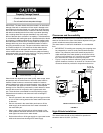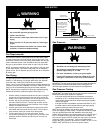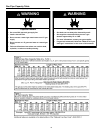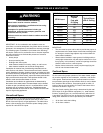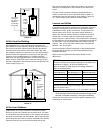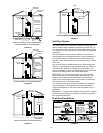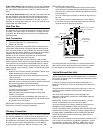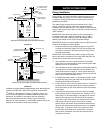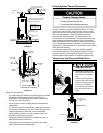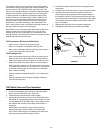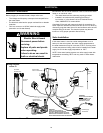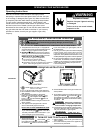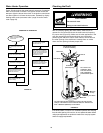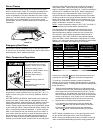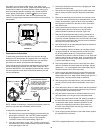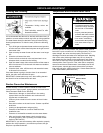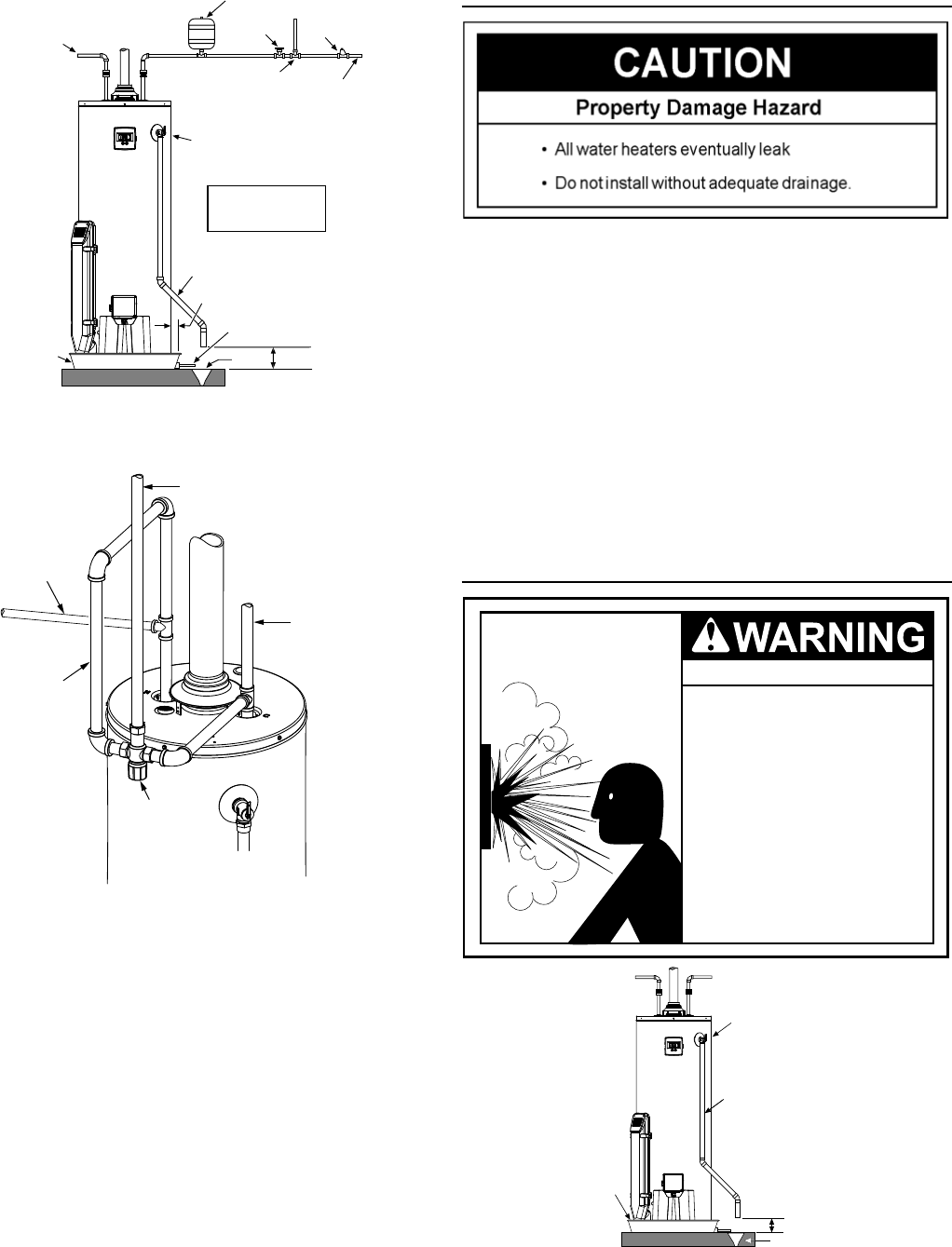
22
Hot Water
Outlet
In a closed system use a
thermal expansion tank
Cold Water
Inlet Valve
Pressure Reducing
Valve with Bypass
Main Water
Supply
Cold Water Supply
to Fixture
Discharge line
(Do Not Cap or Plug)
Drain line 3/4”
ID Min.
Drain
1“ Min.
Metal Drain
Pan 1-3/4”
Depth Max.
Massachusetts:
Install a vacuum relief
in cold water line per
section 19 MGL 142
Typical water piping installation
6“ Min.
Temperature and Pressure (T&P)
Relief Valve (Optional Top T&P
Relief Valve Not Shown)
FIGURE 23.
Unmixed
Hot Water
Mixed Water
To Fixtures
Cold Water
Inlet
Hot Water
Outlet
Mixing Valve
(Set To 120 F)
0
Follow The Mixing Valve
Manufacturer’s Instructions
FIGURE 24.
Please note the following:
• The system should be installed only with piping that is suitable
for potable (drinkable) water such as copper, CPVC, or
polybutylene. This water heater must not be installed using
iron piping or PVC water piping.
• Use only pumps, valves, or fittings that are compatible with
potable water.
• It is recommend that only full flow ball or gate valves are used
in water piping installations. The use of valves that may cause
excessive restriction to water flow is not recommended.
• Use only 95/5 tin-antimony or other equivalent solder. Any
lead based solder must not be used.
• Piping that has been treated with chromates, boiler seal, or
other chemicals must not be used.
• Chemicals that may contaminate the potable water supply
must not be added to the piping system.
Closed System/Thermal Expansion
As water is heated, it expands (thermal expansion). In a closed
system, the volume of water will grow. As the volume of water
grows, there will be a corresponding increase in water pressure
due to thermal expansion. Thermal expansion can cause
premature tank failure (leakage). This type of failure is not
covered under the limited warranty. Thermal expansion can also
cause intermittent temperature-pressure relief valve operation:
water discharged from the valve due to excessive pressure build
up. The temperature-pressure relief valve is not intended for the
constant relief of thermal expansion. This condition is not covered
under the limited warranty.
A properly-sized thermal expansion tank should be installed
on all closed systems to control the harmful effects of thermal
expansion. Contact a plumbing service agency or your retail
supplier regarding the installation of a thermal expansion tank.
Temperature and Pressure Relief Valve
Explosion Hazard
• Temperature-pressure relief
valve must comply with ANSI
Z21.22-CSA 4.4 and ASME
code.
• Properly sized temperature-
pressure relief valve must be
installed in opening provided.
• Can result in overheating
and excessive tank pressure.
• Can cause serious injury or
death.
Temperature and
Pressure Relief Valve
(T&P)
Discharge line 3/4” Min.
Do not cap or plug.
6” Max.
Drain
Metal Drain Pan
FIGURE 25.



